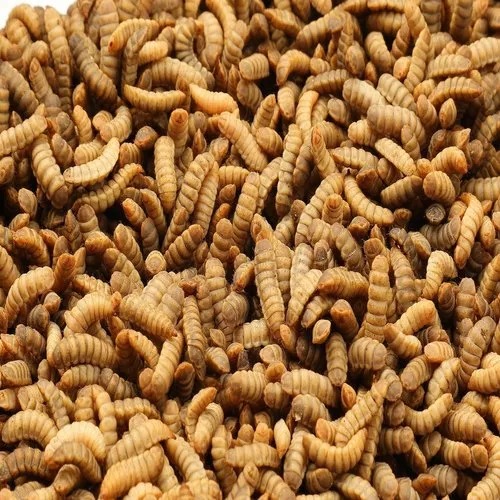by Mr. Ankit Alok Bagaria, Co-Founder of Loopworm
Solving food waste requires a multifaceted approach that addresses behavioural, economic, logistical, and regulatory challenges. By implementing a combination of prevention, recovery, and recycling strategies, along with policy support and stakeholder collaboration, we can work towards a more sustainable and equitable food system. Composting and biogas production are both widely recognized solutions for managing food waste, but they come with their own set of challenges. Composting can be a slow process, requiring adequate time and space for organic materials to decompose properly. Large-scale composting operations may need significant land area and infrastructure, which can be challenging to obtain, especially in urban areas where space is limited. Establishing biogas infrastructure, including digesters, gas collection systems, and purification equipment, requires significant upfront investment. The cost of installing and maintaining biogas facilities may be prohibitive for some communities or businesses, particularly in low-resource settings or areas with limited access to financing.
In recent years, insect farming has emerged as a promising solution to tackle food waste and foster a circular economy, gaining momentum as a sustainable practice with diverse applications. Insects are nature’s scavengers and contribute significantly to ecosystem health and functioning through their scavenging behaviours.
Insects like black soldier flies and mealworms play a crucial role in this system by efficiently converting organic waste into protein-rich biomass, encompassing food scraps, agricultural residues, and even industrial by-products. By consuming these materials, insects divert organic waste from landfills, thereby curbing methane emissions and mitigating environmental pollution.
Moreover, insects themselves are a nutritional powerhouse, packed with protein, essential fatty acids, vitamins, and minerals, rendering them a viable food source for both humans and animals. Integrating insects into the food supply chain not only reduces reliance on resource-intensive livestock farming but also offers a sustainable protein alternative.
Operating within a circular economy framework, insect farming closes the loop on nutrient cycles. For instance, organic waste is fed to insects, which in turn produce nutrient-rich frass, or insect waste, that serves as an excellent natural fertilizer for crops. This closed-loop system facilitates the recycling and reuse of waste products, thereby minimizing resource depletion and environmental impact.
Compared to traditional livestock farming, insect farming boasts several advantages. It requires significantly less land, water, and feed inputs, while boasting a higher feed conversion efficiency. Additionally, insect farming generates fewer greenhouse gas emissions and produces less waste, making it a more environmentally sustainable option.
Insects can be processed into various products, ranging from insect protein powder and insect-based oils to whole or ground insect products for human consumption. They also find application as feed for livestock, poultry, and aquaculture, thereby diversifying their utility within the food system.
Beyond food and feed, insects offer a myriad of opportunities. For instance, black soldier flies produce nutrient-rich frass, high in nitrogen, phosphorus, potassium, and other essential nutrients, which serves as an excellent natural fertilizer. Amino acids present in insect frass can act as biostimulants, enhancing plant growth and boosting crop resilience to stressors like drought or disease.
Insect-derived ingredients, such as chitin and chitosan extracted from insect exoskeletons, are increasingly finding application in cosmetics and skincare products. These substances possess moisturizing, anti-inflammatory, and antimicrobial properties, making them valuable additives in creams, lotions, and beauty products.
Furthermore, insect-based ingredients, such as cricket powder or mealworm powder, are rich sources of protein, vitamins, minerals, and bioactive compounds. These nutrients offer various health benefits, including muscle repair, immune support, and improved metabolic function, leading to the rising popularity of insect-based nutraceuticals.
Insects also serve as valuable bioreactors for producing complex proteins and bioactive molecules used in biopharmaceuticals. Genetically engineered insects can be utilized to produce therapeutic proteins, antibodies, and vaccines, while insect cell culture systems enable large-scale production of recombinant proteins due to their cost-effectiveness and scalability.
Insect-derived materials, like silk produced by silkworms and resin produced by certain beetle species, find application in biodegradable plastics, wound dressings, and tissue engineering scaffolds. These materials offer sustainable alternatives to petroleum-based plastics and synthetic polymers, with the added benefit of being biocompatible and environmentally friendly.
The diverse range of products derived from insects underscores their potential to contribute across various industries, spanning agriculture, cosmetics, healthcare, and biotechnology. By harnessing the unique properties of insect-derived ingredients, we can develop innovative solutions that are not only sustainable but also beneficial for human health and the environment.
About Loopworm:- Loopworm is an Agri-biotechnology startup that takes inspiration from nature to convert insects into value added products promoting health, nourishment and wellbeing for all forms of life. To achieve this, they have not one, but two insect species, silkworms and black soldier flies. These insects are more than just overlooked members of their ecosystem; they are versatile bioresources with the power to change the game. In September 2022, they successfully secured an investment USD 3.4 Million from prominent investors, including Omnivore, Waterbridge, Titan Capital, Climate9ers, and marquee angels such as Mr. Nadir Godrej, Mr. Sanjiv Rangrass, and founders of Zetwerk.








